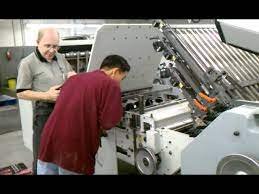
Introduction: In the modern era of manufacturing and logistics, packaging and marking operations play a critical role in ensuring products are delivered safely and efficiently to consumers. However, with the increasing complexity of supply chains and the demand for customization, these operations have become more intricate and demanding. To meet these challenges, businesses are turning to innovative solutions, including the integration of assistants in packaging and marking processes. This article explores the significance of assistants in streamlining packaging and marking operations, their roles, and the benefits they bring to businesses.
The Role of Assistants in Packaging and Marking Operations: Assistants in packaging and marking operations are automated systems or human workers equipped with technological tools to enhance efficiency, accuracy, and speed in the packaging and marking process. These assistants can take various forms, ranging from robotic arms in manufacturing plants to software applications that automate labeling and tracking.
- Automation in Packaging:
- Robotic Packaging Systems: Robotic arms equipped with sensors and actuators can handle repetitive tasks such as picking, placing, and sealing products into containers. These robots are programmed to work seamlessly alongside human operators, increasing throughput and reducing errors.
- Automated Packaging Machinery: Advanced machinery such as automated carton erectors, fillers, sealers, and labelers can streamline the packaging process by reducing manual intervention. These systems are capable of high-speed operation and can adapt to different product sizes and packaging formats.
- Precision Marking Technologies:
- Barcode and RFID Labeling: Assistants in marking operations often involve barcode and RFID labeling systems. These technologies enable automated identification and tracking of products throughout the supply chain, ensuring accurate inventory management and traceability.
- Laser Marking Systems: Laser marking offers a precise and permanent marking solution for various materials, including metal, plastic, and glass. Laser marking assistants can create high-quality, tamper-resistant marks, barcodes, and serial numbers, enhancing product authenticity and security.
- Integration of Artificial Intelligence (AI):
- AI-powered Vision Systems: AI-driven vision systems can inspect and identify products in real-time, ensuring packaging accuracy and detecting defects or inconsistencies. These systems utilize machine learning algorithms to improve over time and adapt to new packaging requirements.
- Intelligent Packaging Design: AI algorithms can analyze consumer preferences, market trends, and logistical constraints to optimize packaging design for efficiency, sustainability, and brand appeal. By leveraging AI, businesses can create packaging solutions that enhance the overall customer experience while minimizing environmental impact.
Benefits of Assistants in Packaging and Marking Operations: The integration of assistants in packaging and marking operations offers several benefits to businesses across industries:
- Improved Efficiency:
- Assistants automate repetitive tasks, allowing human operators to focus on more complex activities, thereby increasing overall efficiency and productivity.
- Automated systems can operate 24/7 without fatigue, reducing downtime and accelerating the packaging and marking process.
- Enhanced Accuracy and Quality:
- Robotic arms and AI-driven vision systems ensure precise placement of products and labels, reducing errors and minimizing rework.
- Barcode and RFID labeling systems enable accurate tracking and traceability, enhancing inventory management and regulatory compliance.
- Cost Savings:
- By streamlining operations and minimizing errors, assistants in packaging and marking operations can reduce waste and lower production costs.
- Automation eliminates the need for manual labor in repetitive tasks, leading to long-term cost savings through increased productivity and efficiency.
- Scalability and Flexibility:
- Automated packaging and marking systems can easily scale to accommodate fluctuating demand and changing product requirements, providing businesses with greater flexibility in their operations.
- AI-driven technologies can analyze data in real-time and adapt to evolving market trends, enabling businesses to stay agile and responsive to customer needs.
- Compliance and Security:
- Barcode, RFID, and laser marking technologies assist businesses in meeting regulatory requirements and industry standards for product labeling, authentication, and traceability.
- Advanced marking solutions, such as laser marking, offer tamper-resistant and counterfeit-proof identification, enhancing product security and brand protection.

Conclusion: In conclusion, assistants play a crucial role in streamlining packaging and marking operations across industries. Whether through robotic automation, AI-driven vision systems, or advanced marking technologies, these assistants enhance efficiency, accuracy, and flexibility in the packaging and marking process. By embracing innovative solutions, businesses can optimize their operations, reduce costs, and deliver high-quality products to consumers while maintaining compliance and security standards in an increasingly competitive marketplace.
